Recently the Jerusalem Post has posted a terrific article called One on One with Felix Posen: Secular scholarship. Mr. Rosen discusses many of the failings of the Torah education that young Jews are receiving today. In the interview he covers many central issues that affect modern Jewish education. However, he makes a grand fas paux in the following segment:
You know, one might call himself a Jew because he is born to a Jewish mother.
Well, yes he would and yes he should!
But the Jewish-mother concept was created in talmudic times by the rabbis.
The Talmud (Kiddushin 68b) does discuss the issue of the status of a child born to a non-Jewish woman:
Prior to that, in biblical times, it was patrilineal descent,…
Well, if you go back to Isaac and Ishmael, you see that Sarah was the deciding factor. With Jacob and Esau, it was Rebbecca who decided that one son, Isaac, should be the bearer of the birthright (as the Nation Of Israel would later be defined the the Torah at Mount Sinai). However, we can see that even before the giving of the Torah, it was the mother’s influence that was the decisive factor as to who would be the spiritual representative amongst Abraham’s descendants.
…as it is to this day for the kohanim [priests].
One’s father has always been the determining factor for a Jew’s tribal affiliation and custom (minhag). Kohanim are a subset of the tribe of Levi-Aaron was from the tribe of Levi and his descendants are Kohanim.
In the 19th century, with the development of Reform Judaism, there was what we call bilineality – paternal or maternal descent. And then, of course, the Nazis defined a Jew as someone with a Jewish grandparent.
Let’s summarize this statement. The definition of “who is a Jew” has devolved as follows:
On the Posen Foundation website the following message is written:
So, who is a Jew? What does it mean to be a Jew? It depends whom you ask. From my point of view, and from that of most people who call themselves secular, they say anyone who considers himself or herself a Jew is a Jew.
There is a great irony in a convert to Judaism coming along and questioning the statements of an accomplished philanthropist like Felix Posen. However, perhaps the greatest gift he and other influential Jewish movers and shakers could do is to allow to Rabbis-the real Rabbis-do determine who is a Jew and to teach them the real Torah. If not, there might not be enough Jews to be on the receiving end of such a generosity as his.
You know, one might call himself a Jew because he is born to a Jewish mother. But the Jewish-mother concept was created in talmudic times by the rabbis. Prior to that, in biblical times, it was patrilineal descent, as it is to this day for the kohanim [priests]. In the 19th century, with the development of Reform Judaism, there was what we call bilineality – paternal or maternal descent. And then, of course, the Nazis defined a Jew as someone with a Jewish grandparent.This block is so full of errors that I must break it down into components in order to sift through it properly.
So, who is a Jew? What does it mean to be a Jew? It depends whom you ask. From my point of view, and from that of most people who call themselves secular, they say anyone who considers himself or herself a Jew is a Jew.
You know, one might call himself a Jew because he is born to a Jewish mother.
Well, yes he would and yes he should!
But the Jewish-mother concept was created in talmudic times by the rabbis.
The Talmud (Kiddushin 68b) does discuss the issue of the status of a child born to a non-Jewish woman:
how do we know that the issue takes her status? — Because Scripture saith, the wife and her children shall be her master’s.1 How do we know [it of a freeborn] Gentile woman? — Scripture saith, neither shalt thou make marriages with them.2 How do we know that her issue bears her status? — R. Johanan said on the authority of R. Simeon b. Yohai, Because Scripture saith, For he will turn away thy son from following me:3 thy son by4 an Israelite woman is called thy son, but thy son by a heathen is not called thy son.5 Rabina said: This proves that thy daughter’s son by a heathen is called thy son.6This passage in the Talmud is based on a statement in the Torah:
(1) Ex. XXI, 4. This refers to a Gentile bondmaid given as wife to a Hebrew slave. The children remain slaves when their father is freed, shewing that they bear their mother’s status.
(2) Deut. VII, 3. The verse implies that such marriage is not recognised.
(3) Ibid. 4.
(4) Lit., ‘who comes’.
(5) [Although the text speaks both of the case of a Jewess becoming the wife of a heathen, and of a heathen becoming the wife of a Jew, yet it gives only one reason for the prohibition of intermarriage: viz., lest ‘he turn aside thy son from following after me’, a reason which, as it stands appears applicable only to one prohibition. Hence the verse must be taken not as expressing the fear lest the Jewish partner in a heathen marriage may turn aside from God, since this is evident and is equally applicable to both cases, but states an additional reason for the prohibition with reference to the offspring — the fear that the heathen father ‘will turn aside thy son’ i.e., the son of thy daughter who is legally a Jew ‘from following after me’; whereas in the case where a Jew marries a heathen woman the fear does not arise, since the child follows her status, and is not considered ‘thy son’ Rashi.] Tosaf.: Since Scripture states ‘son’ and not ‘seed’ which would include the son’s son, it is evident that the fear is only for thy ‘son’ born of a Jewess, but not his son, born of a Gentile. That must be because his son is a heathen too, like the mother.
(6) [According to Rashi's interpretation (n. 5), whereas R. Johanan's main emphasis is on the heathen status of the offspring of a heathen woman by a Jew, Rabina stresses the other inference — the status of the offspring of a Jewish woman by a heathen. v. Strashun.] Tosaf. I.e., a Jew. This follows because Scripture does not say: for he will turn away thy son and thy daughter. Now, ‘and thy daughter’ would likewise imply, but not thy daughter’s son, as in n. 5, whence we would learn that her son by a heathen is also a heathen. Since he is not excluded, it follows that Scripture objects to his being ‘turned away’ too, because he is a Jew (Tosaf.)
Deuteronomy (7:4)The Talmud (the written version of the Oral Tradition that was passed down from Mount Sinai) discusses this verse and provides the means to understand what is written in the Torah. It is a juvenile mistake to think that the Rabbis of the Talmud (Amoraim) simply concocted their arguments. That suggestion is more of a Christian or even Muslim view than Jewish. Mr. Posen continues and makes the following statement:
He (the non-Jewish idolater who is the father of the child) will wean your son away from Me (G-d).
And all during my youth, the whole concept of religious Judaism was something that I thought about: seeing so many other types of Jews, particularly in America, not only nonreligious Jews, but also different kinds of religious ones, such as Conservative, Reform and Reconstructionist – which were considered completely treif where I was born.These movements are completely treif today, as well! It is because of these “movements” Jews are confused and intermarrying rapidly.
Prior to that, in biblical times, it was patrilineal descent,…
Well, if you go back to Isaac and Ishmael, you see that Sarah was the deciding factor. With Jacob and Esau, it was Rebbecca who decided that one son, Isaac, should be the bearer of the birthright (as the Nation Of Israel would later be defined the the Torah at Mount Sinai). However, we can see that even before the giving of the Torah, it was the mother’s influence that was the decisive factor as to who would be the spiritual representative amongst Abraham’s descendants.
…as it is to this day for the kohanim [priests].
One’s father has always been the determining factor for a Jew’s tribal affiliation and custom (minhag). Kohanim are a subset of the tribe of Levi-Aaron was from the tribe of Levi and his descendants are Kohanim.
In the 19th century, with the development of Reform Judaism, there was what we call bilineality – paternal or maternal descent. And then, of course, the Nazis defined a Jew as someone with a Jewish grandparent.
Let’s summarize this statement. The definition of “who is a Jew” has devolved as follows:
Biblical—>Rabbinical—>Reform—>NaziThe only step he left out is the last one-oblivion!
On the Posen Foundation website the following message is written:
The Foundation works internationally as a service provider to support secular Jewish education and educational initiatives on modern Jewish culture and the process of Jewish secularization.The process of Jewish secularization? This sounds like some kind of haskalah trickery! Christians also want to draw Jews away from Torah-what is the essential difference? This man is putting in millions into doing what-to ensure that Jews shed themselves of their own religion? In another section the site states:
…the Foundation offers this growing community the opportunity to deepen and enrich the study of its cultural and historic heritage—from a secular, scholarly perspective.Scholarly? In one paragraph of the founder’s interview there so many errors that the ashes of red heffer couldn’t cleanse it! So much for secular scholarship…
So, who is a Jew? What does it mean to be a Jew? It depends whom you ask. From my point of view, and from that of most people who call themselves secular, they say anyone who considers himself or herself a Jew is a Jew.
There is a great irony in a convert to Judaism coming along and questioning the statements of an accomplished philanthropist like Felix Posen. However, perhaps the greatest gift he and other influential Jewish movers and shakers could do is to allow to Rabbis-the real Rabbis-do determine who is a Jew and to teach them the real Torah. If not, there might not be enough Jews to be on the receiving end of such a generosity as his.
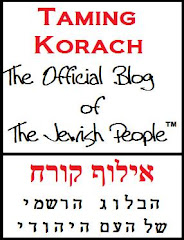






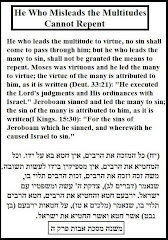
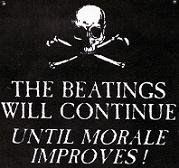

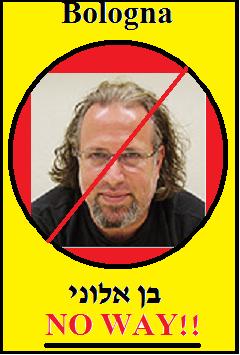

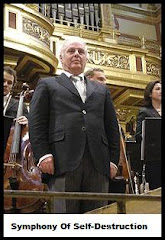
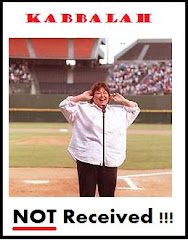
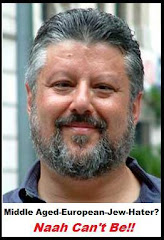

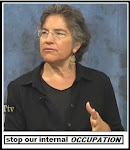
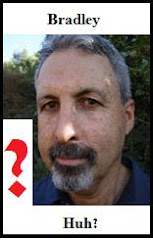


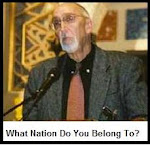

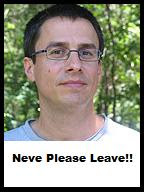



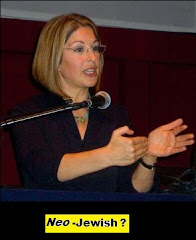


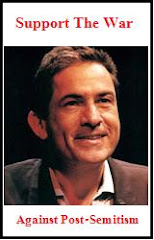


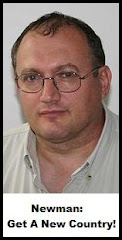



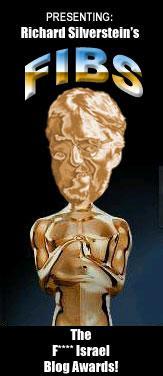



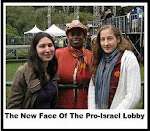
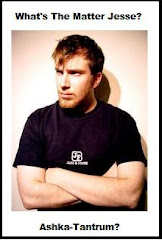



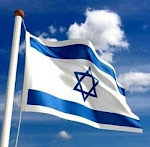

4 comments:
Yasher Koach. Your response is an impassioned one and rather embarrassing for we Jews who were born to a Jewish mother, to have to contend with anti-Torah sentiments such as the ones you are responding to.
Unfortunately, this is a discussion that has gone on for several decades -and it's not likely to be decided by a letter to the editor. People who hold beliefs such as Posen's are not likely to be dissuaded. So who is your audience? Those that already agree with you....
I happen to be a British Israelist. I hope that doesn't offend you, but if you are interested, then check out my site, especially the blogs:
http://craig-myspace-sandwich.blogspot.com/2009/08/who-is-jew-ii.html
http://craig-myspace-sandwich.blogspot.com/2009/08/how-torah-supports-british-israelism.html
http://craig-myspace-sandwich.blogspot.com/2009/08/books-that-support-british-israelism.html
Craig thanks for your comments, here is what I think:
http://craig-myspace-sandwich.blogspot.com/2009/08/who-is-jew-ii.html
"That is there is no longer a proof of Jewishness that Rabbis can cling to."
We follow Jewish law-הלכה. This has not changed in the Orthodox world. This statement is wrong.
"telling the truth is not a Law requirement for gentiles."
Well, Lavan and Evan were known for saying one thing and doing another. Yaakov is called איש אמת-a man of truth. Perhaps this is where Judaism distinguishes between being a gentile and being a righteous gentile!
To me that is the spirit of the Law, not rigid adherence to it over issues such as maternal ascent. Biblical patriarchs would have been put to death by the law if not for God’s mercy.
Avraham risked his life by jumping into a fire at the hands of Nimrod. Isaac was shot at by Ismael. Yaakov was chased by Lavan and Esav. Is that not self sacrifice? Do you want to back up your claims about the avot? The avot-the patriarchs-went out of their way to follow the will of G-d, even before the Torah was given.
"I think Jews have made a great mistake by not considering the kings of the world to be Jewish."
This is a wild statement. Nimrod, the four kings whom Avraham defeated, and Achashverush were all kings-but were far from the Torah!
"George Bush Jr., a descendent of Judah..."
This is really out there, as with the rest of the paragraph! The husbands of the Jews? Are you referring to Song Of Songs?
http://craig-myspace-sandwich.blogspot.com/2009/08/how-torah-supports-british-israelism.html
"How the Torah supports British Israelism:"
What is "British Israelism?"
Post a Comment